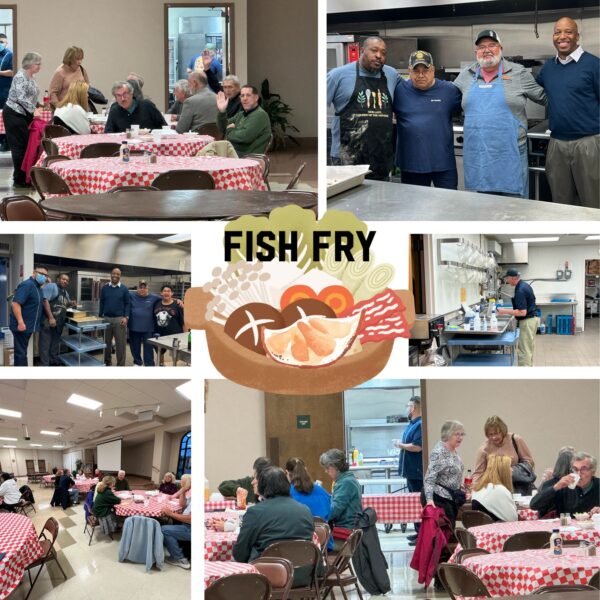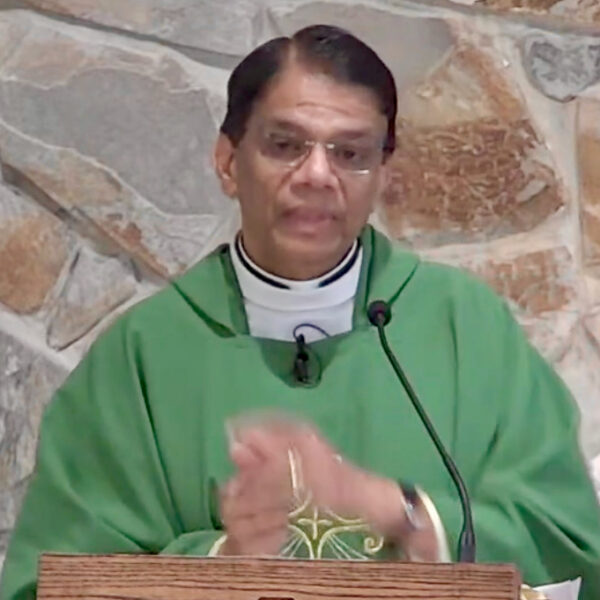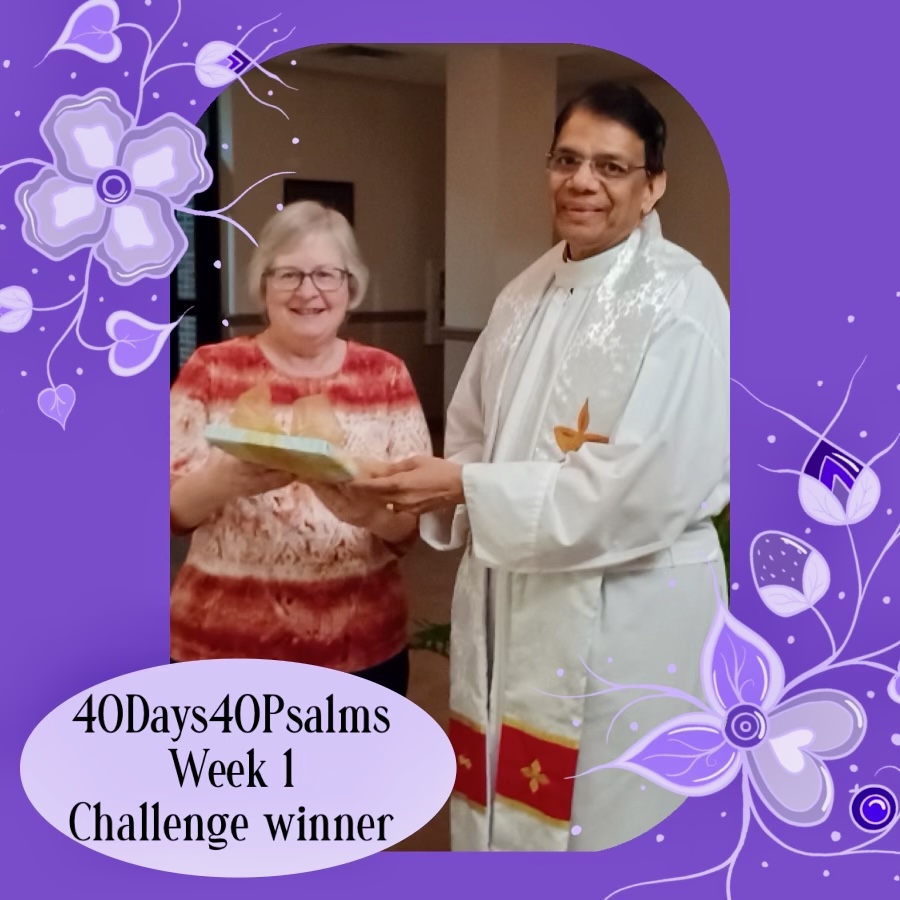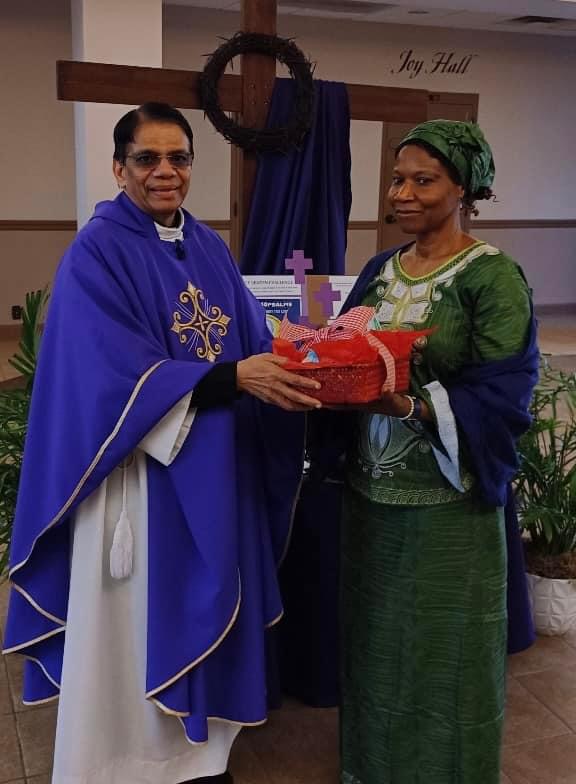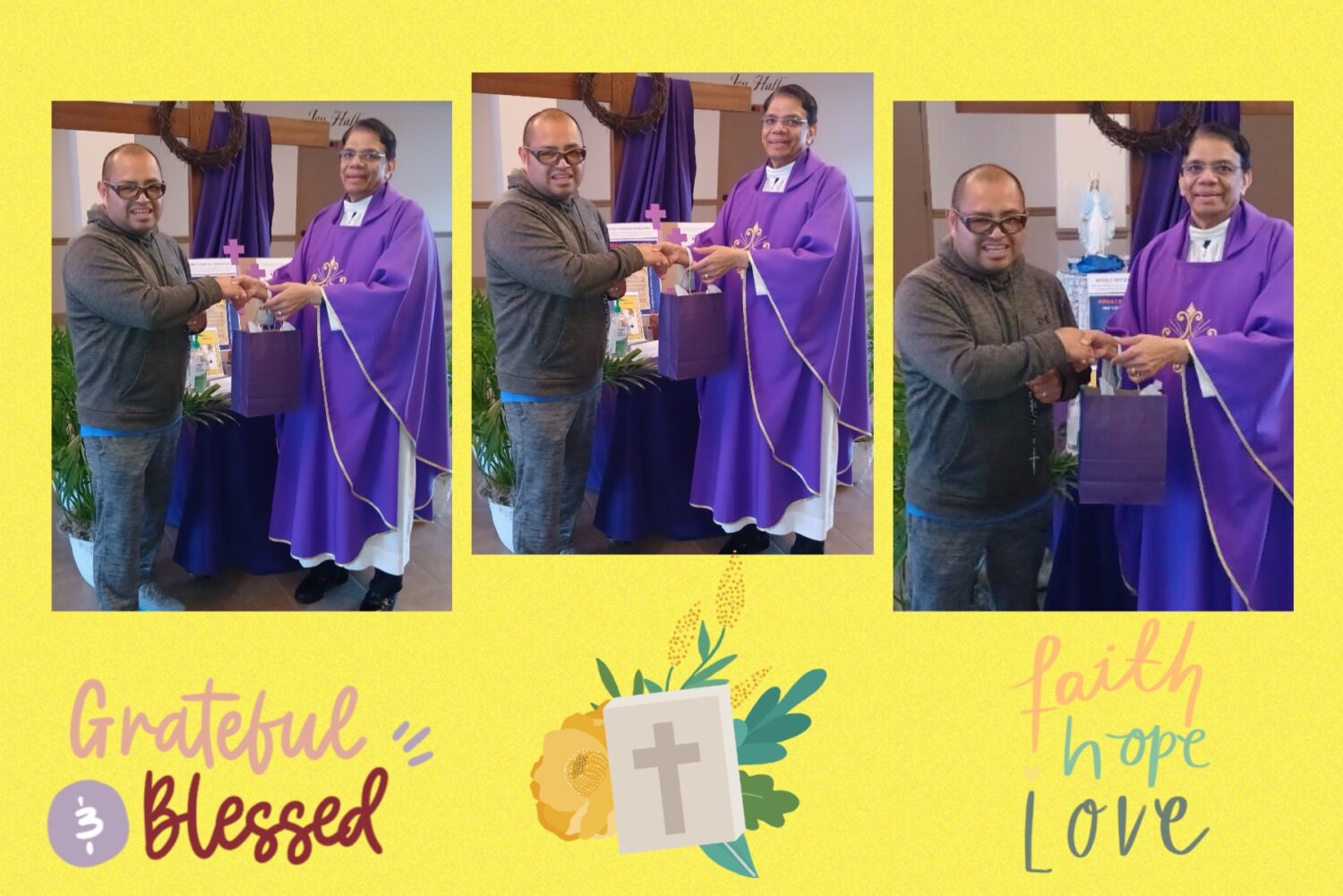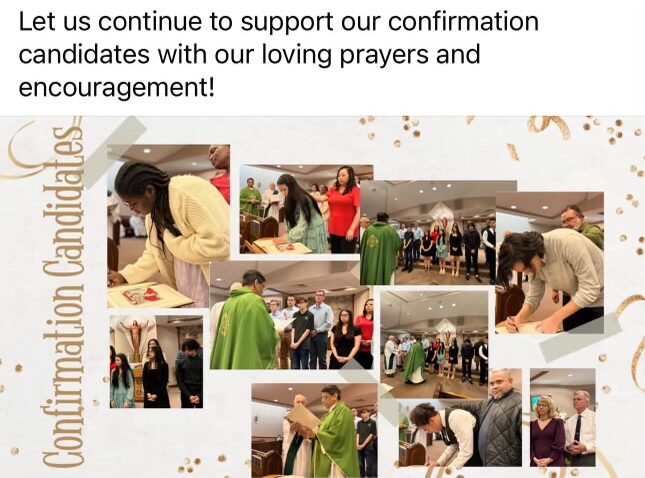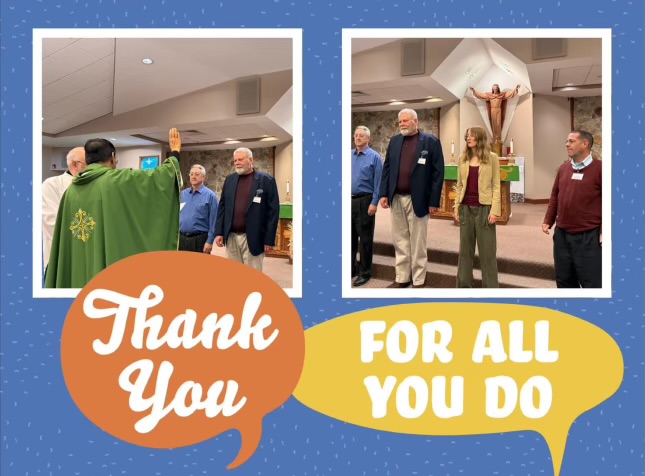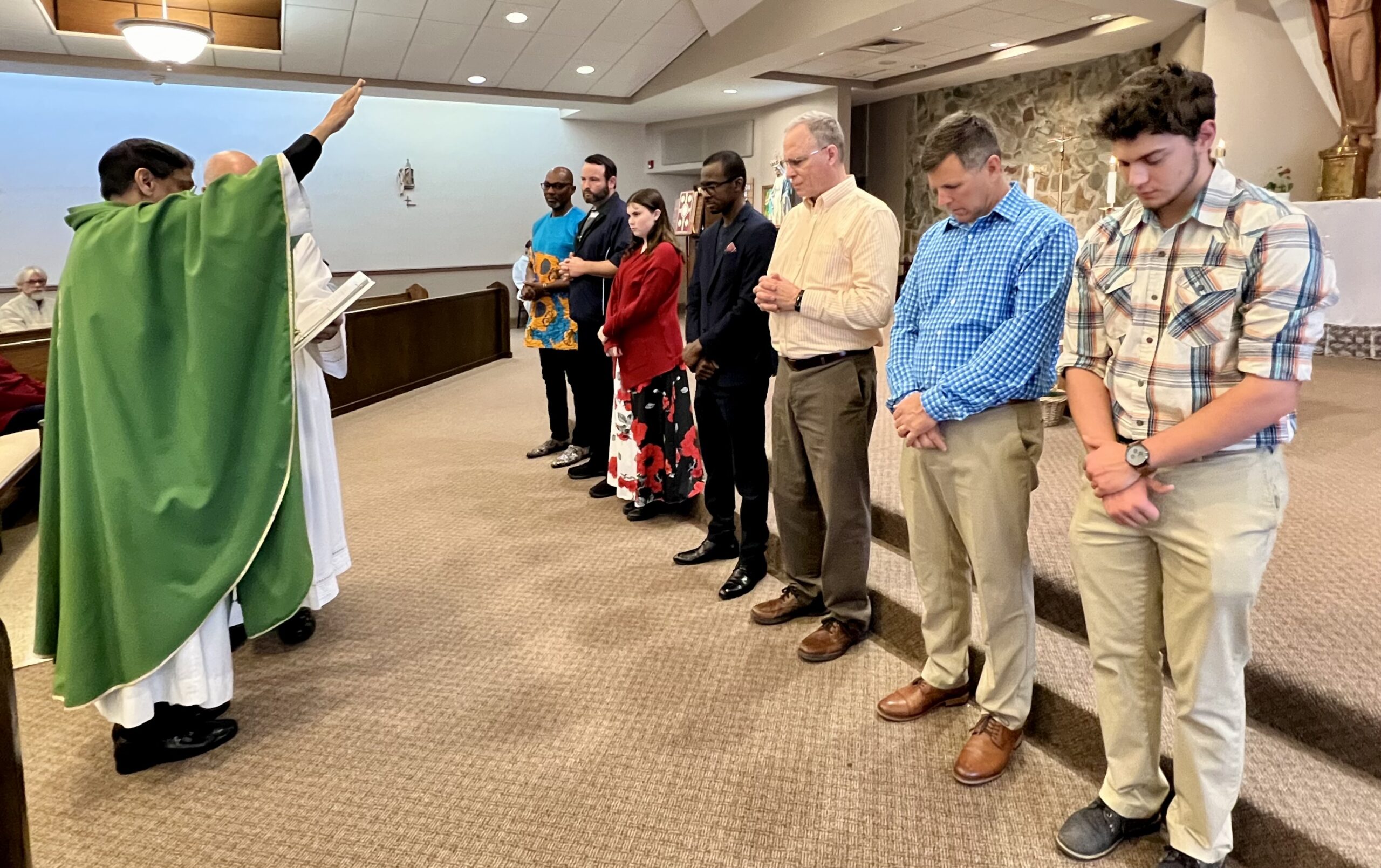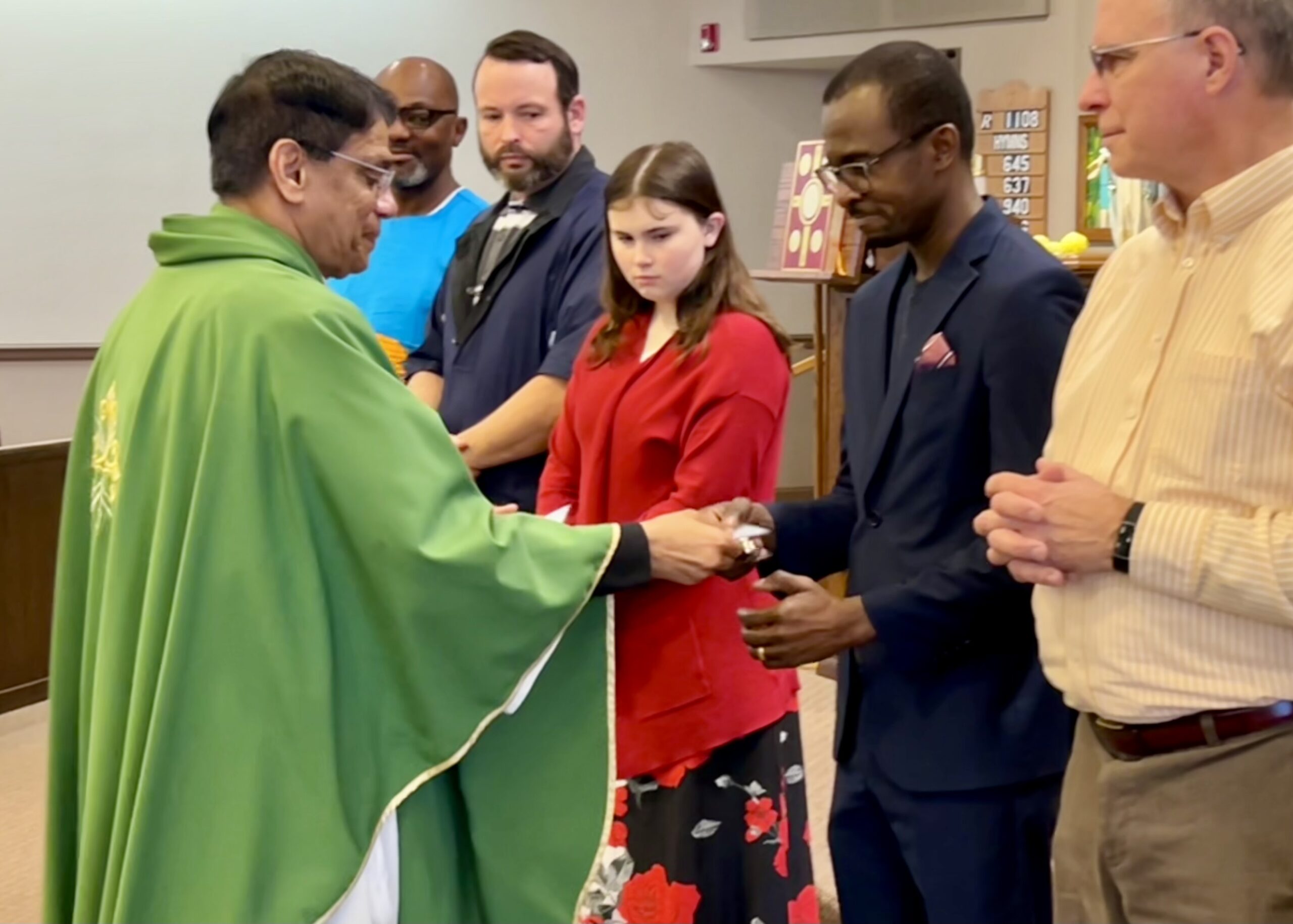Repent and Come Back to Me!
In the First reading Moses gives the Ten Commandments to the Israelites. The Commandments offer a way of life rooted in fidelity to God. This focus leads to right relationship with all others without distortion or distraction. Yet even as Moses is receiving this law from God, the Israelites are worshiping a golden calf at the base of the holy mountain. Their impatience quickly leads them astray but God does not give up on them. He calls them back again. God also knows our impatience, our fixations and our longings. In the midst of a world competing for our attention, God calls us back.
In fact, one of God’s primary actions throughout scripture is to call us back from distractions. Our Lent began with God speaking through the prophet Joel: ”Return to me with your whole heart.” God knows that our desire is to live ultimately for Him, but our world at the same time tries to pull us from that. God knows that our distractions are linked to our deep longing for a connection to what is meaningful and holy. As we know, our desire is ultimately for God, but the problem is that our world and worldly things try to substitute for the real thing.
Put our trust in God always. He never wants any one of us to be lost. He calls us back again and again. God will never give up on us at any time. So therefore, my dear brothers and sisters in Jesus Christ, this is the time for repentance and coming back. The season of Lent always reminds us that the Lord is telling us to “Repent and Come back to Me.” He came into this world in order to save us. On this Lenten journey, God invites us to recognize our distractions and our longing for holiness to put into practice.
Through his death and resurrection, the Lord Jesus has reconciled us with God and made us adopted sons and daughters of our heavenly Father. He fills us with his Holy Spirit and makes us living temples of our God. Do you recognize the indwelling presence of God within you through the gift and working of his Holy Spirit? The Lord Jesus wants to renew our minds and to purify our hearts so that we may offer God fitting worship and enjoy his presence both now and forever. Ask the Lord Jesus to fill you with a holy desire and burning zeal for his holiness and glory to grow in you and transform the way you think, act, and live as a son or daughter of God. The Lord Jesus makes us temples of the Holy Spirit. As the Good Shepherd takes care of his sheep, He takes care of us always. He will never abandon us at any time. Put our trust in Him and only in Him and follow his footsteps and pray to him always: Forgive our sins and lead us not into the temptations of this world.
God bless you all and I wish you all a happy, fruitful, Holy season of Lent.
Fr. Charley
Listen to Him
After the disciples climb up the mountain, see the Lord transfigured, and witness the conversation between Jesus, Moses, and Elijah, God the Father finally speaks. God the Father speaks only two times in the New Testament: at Jesus’ baptism, and during the time of Transfiguration. But what he says is really quite strange when we think about it. After pronouncing Jesus once again as his Beloved Son, God the Father thundered, “Listen to him!” How strange is this?After all, what had Peter, James, and John been doing for the previous two years but listening to Jesus? That is what Lent is about, listening to Jesus. Are we giving God sufficient time to speak to us? Is the Lord asking something of us this Lent? If so, let us follow the Father’s advice, “This is my chosen Son, listen to him.”
It took the apostles a long time to get to know Jesus and the longer they were with Jesus the better they got to know him. It is the same for us. We also gradually grow in our love for and knowledge of Jesus and we also grow in understanding what Jesus is asking of us. The Collect (Alternative Opening Prayer) for Mass today expresses beautifully our hopes for Lent to our heavenly Father:
Open our hearts to the voice of your Word and free us from the original darkness that shadows our vision. Restore our sight that we may look upon your Son who calls us to repentance and change of heart.
We must pray that our hearts would be open, that we be freed from darkness, and have our sight restored. It is really a prayer that we be transformed during Lent. And listen to Jesus and understand him much better. In our prayers we often forget to include the part of listening to Him. When we pray, many times, we just ask or say all that we need or share our sufferings and worries and leave the place; we don’t wait for the Lord to speak to us. Only by listening can we transform our lives the way Jesus wants to do for us. Listening is a skill and an art. So, during this season of Lent especially, give more time for Jesus to speak to us than we speak to Jesus. Always listen to Him, then we will hear in the innermost heart what Jesus wants to tell us. Wait for the Lord and listen to Him always. I wish you a very Holy Season of Lent.
Love and prayers,
Fr. Charley
Touch Me Lord and Make Me Clean
Find strength in Jesus always, who was tested.
In the Old Testament, 40 days was often seen as a significant period of testing and preparation for entering into a covenant relationship with God. Today is the First Sunday of Lent. Lent is a 40-day period which begins on Ash Wednesday and ends before the celebration of the Paschal Triduum excluding Sundays. ‘Forty’ is a number often associated with intense spiritual experiences. God caused it to rain for forty days and forty nights to cleanse the earth. The Israelites were in the wilderness for forty years. Moses spent forty days and forty nights on Mount Sinai and Elijah journeyed forty days and forty nights to Mount Horeb. Jesus was anointed by the Spirit in the waters of the Jordan River, he journeyed to the wilderness for 40 days to prepare himself for the mission which the Father sent him to accomplish—to offer His life as the perfect Sacrifice for our sins.
Mark states it most emphatically: “The Spirit drove Jesus out into the desert…tempted by Satan.” The word tempt in English usually means to tempt or attract to sin. The scriptural word here means test in the sense of proving and purifying someone to see if they are ready for the task at hand. God tests his servants to see if they are fit to be used by him. God tested Abraham to prove his faith. The Israelites were sorely tested in Egypt. Jesus was no exception to this testing. Satan, in turn, did his best to entice Jesus to choose his own will over the will of his Father in heaven. Despite his weakened condition, Jesus rejected Satan’s temptations. Jesus found his strength in his Father’s word and found strength in doing his will. Satan will surely tempt us and will try his best to get us to choose our will over God’s will. If he can’t make us renounce our faith or sin mortally, he will then try to get us to make choices that will lead us, little by little, away from what God wants for us.
Therefore, my dear brothers and sisters in Jesus Christ, we shall always try to stay with Jesus and especially at the times of temptations in our daily life. He is the greatest Help and model in our life to follow. Wish you all great Holy Season of Lent and prepare ourselves to take up our daily crosses without any complaint and with great love. And able to pray “Let God’s will be done in our life.”
Love and prayers,
Fr. Charley
Touch Me Lord and Make Me Clean
Lepers were outcasts of society. They were driven from their homes and communities and left to fend for themselves. Their physical condition was terrible as they slowly lost the use of their limbs and withered away. They were not only shunned but regarded as “already dead” even by their relatives. The Jewish law forbade anyone from touching or approaching a leper. This leper did something quite remarkable. He approached Jesus confidently and humbly, expecting that Jesus could and would heal him. No one who sought out Jesus was refused his help. Even the untouchables and the outcasts of Jewish society found help in him. Jesus touched the leper who approached him and he made him whole and clean. Jesus not only grants the man his request, but he demonstrates the personal love, compassion, and tenderness of God in his physical touch. Jesus met the man’s misery with compassion and tender kindness. He communicated the love and mercy of God in a sign that spoke more eloquently than words. He touched the man and made him clean—not only physically but spiritually as well. The Lord is always ready to show us his mercy and to free us from whatever makes us unclean, unapproachable, or unloving towards others.
My dear brothers and sisters in Jesus Christ, we shall also do what Jesus did to the leprosy-affected man, showing kindness and mercy towards others and never disregarding anyone. And also, whenever we feel sick and disregarded by others in society, make sure in our hearts that there is someone on our side, Our Lord Jesus Christ. In all our discriminations and pains and sufferings, Jesus is on our side because he had already gone through all this in his own life. That’s what we are going to meditate on this coming Holy Season of Lent. During this season of Lent, let us pray to him to make us clean and to make us his own. We shall prepare well for the season of Lent. On this coming Wednesday when we come and receive the ashes on our foreheads, we shall ask the Good Lord to help us spend more time in meditating and praying to him to make us clean and pure of heart and body. We have 7 AM, 12 noon, and 6 PM Masses and Ashes. Try to make this Holy Season with Jesus and for Jesus doing more prayer, penance, almsgiving, and sacrifices in our daily lives. Try to “Imitate Christ” in our lives. God Bless you and I wish you all to have a Holy Season of Lent.
Love and prayers,
Fr. Charley
God’s Own
Once a great speaker was giving a talk or a seminar about our value before God. He had taken a $50 bill and showed everyone in the hall and asked how many of them needed it. All the people in the hall lifted their hands. He then took the $50 bill and started to fold it into so many pieces and then he repeated the same question. All of them raised their hands. Then he put the dollar bill on the floor where it became very dirty and then he asked again, “How many of you want it?” Again, all of them raised their hands for it. Then the speaker said, “My dear brothers and sister, you have just learned a very valuable lesson from this dollar bill. No matter what I did to the money, you still wanted it because it did not decrease in value. No matter how smudged and rumpled it became, it was still worth $50.” Many times, in our day-to-day lives, we get knocked around—dropped, crumpled, smudged, and ground into the dirt—by the decisions we make and the circumstances that come our way. And sometimes we feel as though we are worthless, used up, and of no account. But no matter what has happened—or what will happen—we will never lose our value in God’s eyes. Look at the first reading in the Book of Job, how he speaks about life—the pains and problems that he was facing in his life, but he was not ever ready to give up his faith in God. Even his best friends were trying to get God out of his life. He knew his value before God would never decline whatever happened to him, and he had faith that his God would never abandon him at any time. We also heard in the second reading that Paul was talking to himself. “I will become weak and a slave for God in this world. I know how to proclaim his gospel. Whatever happens to me, I am God’s own.”
My dear brothers and sisters in Jesus Christ, this must be our attitude also. People can put us down, do all kinds of evil to us, but before God we are God’s own. Do not ever be afraid. Without His knowledge nothing will ever happen to us, because God is our Protector and Guard. Do we feel spiritually sick? Do you have a fever? St. John Henry Newman says “fever” can be gambling, alcohol or any other bad habits. Jesus can touch and heal from them just as He healed the sickness of Peter’s mother-in-law. The Doctor is in the house—Jesus Christ, the Great Physician—and just as His love healed Simon’s mother-in-law, even so, His love can heal us, help us, cure us, redeem us, save us. Make sure in your heart that He only can do that in our lives because we are God’s own. Don’t ever hesitate to approach Him anytime.
Love and Prayers,
Fr. Charley
Steps Required to Gain the Nativity Plenary Indulgence
(between January 3, 2024 and February 2, 2024)
1. Make the intention of receiving the plenary indulgence. Ask God to help you be completely detached from all sin. He wants this for you, and he will help! Have confidence in God and in his grace. Also, recite an Act of Contrition from the heart.
2. Decide whether you wish to receive the indulgence for yourself or for the souls in Purgatory. Make your decision part of your intention also.
3. Think about when you last went to Confession, and consider whether you need to go again soon. To gain a plenary indulgence, one must go to confession within about 20 days before or after.
4. Visit the Nativity scene at the Cathedral of Saint Paul or in another one of the area churches or public chapels.
5. Pause in prayer for a few minutes before the Nativity, contemplating the birth of Our Lord, and pouring out petitions to God for peace. It is especially fitting to pray for peace in the Holy Land.
6. Recite an Our Father, Apostles’ Creed, and conclude with the following brief litany (this all may be done in the pew—you need not remain before the Nativity for this part):
Dearest Jesus, infant King, have mercy on us.
Most blessed Mother, Queen of Peace, pray for us.
Good Saint Joseph, guardian and protector of the Church, pray for us.
Saint Francis of Assisi, Protagonist of Peace, pray for us.
7. Say a Hail Mary “for the intentions of our Holy Father, Pope Francis.” It is not necessary to know what his specific intentions are. Our Lady will know!
8. Go to Holy Communion (in the state of grace) as soon as possible (within 20 days before or after). One confession can cover multiple indulgences—but one communion is needed for each indulgence. (Therefore, those who go to confession at least once a month and also go to Mass each day can theoretically receive one plenary indulgence per day!)
9. Give thanks to God for these gifts of grace from Holy Mother Church, which help us on our path to eternal life with the Holy Family, St. Francis, and all the saints and angels! (Taken from the Cathedral of St. Paul)
My dear Brothers and sisters in Jesus Christ, we shall try our best to gain the Indulgence in our spiritual life. Make use of the opportunity that the Holy Church and the Holy Father have given to us.
With love and prayers, Fr. Charley
